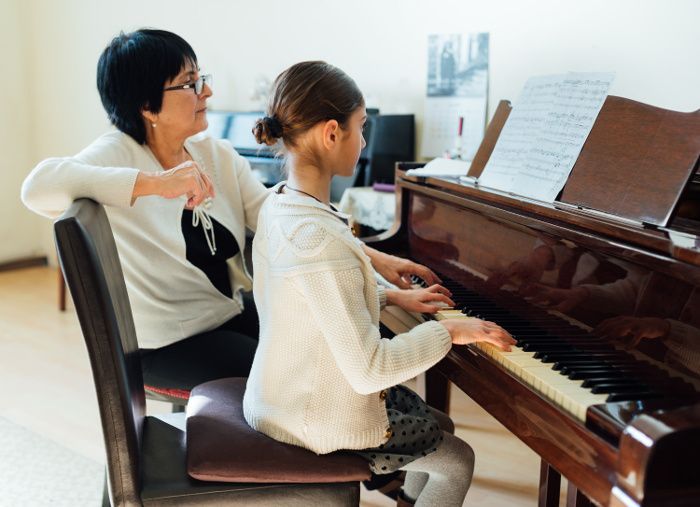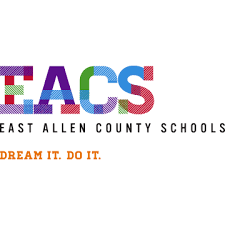The Many Benefits of Music Lessons for Children
 If you are a parent looking for ways to enhance your child’s development and education, you can’t go wrong with music lessons. Whether your child is a music prodigy or not the benefits of music education stretch far beyond reading music and playing an instrument.
If you are a parent looking for ways to enhance your child’s development and education, you can’t go wrong with music lessons. Whether your child is a music prodigy or not the benefits of music education stretch far beyond reading music and playing an instrument.
Music education draws on many skills and senses simultaneously, including sight, sound, and gross and fine motor skills. Research proves that learning music (any instrument) improves development in other areas. Your child might not become the next Beethoven, but enrolling them in music education will benefit them for a lifetime.
Improves Language Skills
Children between ages two and nine enrolled in music education demonstrate significant development in language skills. Music enhances the brain’s ability to decode sounds and words. This means as children learn an instrument, they learn to hear and process new sounds, training their ears and brains to identify nuances and sounds in languages.
Musical training develops a part of the left side of the brain where language processing takes place. This language development leads to greater social competence, as children are better able to comprehend speech and writing, verbally interact, and clearly express themselves.
These neurological benefits last a lifetime! A study by a neuroscientist at Northwestern University showed that adults between 55 and 76 years of age who received four to 14 years of music education had faster responses to speech sounds than people who did not receive any musical training (even though none of them had played an instrument in about 40 years).
Improves Academic Skills
Dozens of studies demonstrated that even a few weeks of music lessons increases overall brain activity and some parts of the brain even grow larger or develop new pathways to transmit information.
Music and math come together. Understanding rhythm, beat, and scales demands learning how to divide, understand fractions, and identify patterns. Music also improves both short-term and long-term memory in children.
Additionally, learning to read and memorize music improves reading comprehension skills.
Develops Spatial and Motor Skills
Playing an instrument requires coordination and both fine and gross motor skills. Depending on the instrument, it may require full-body coordination between your arms and legs (like drums). Other instruments, like piano or trumpet, demand coordinating different actions from your right and left hands at the same time. This improves overall coordination, timing, and fine motor skills.
There is also a casual connection between music education and spatial intelligence. Understanding music may help children develop the skills to solve multistep problems like in math, engineering, architecture, and art.
Teaches Social Skills and Manners
If your child plays in a group, this provides opportunities to learn to work together, communicate, and plan. It teaches tolerance, teamwork and problem solving.
Children practice patience and good manners as they wait their turn and listen to other musicians play. They learn how to show respect for their fellow musicians and practice sitting quietly and attentively for a set amount of time.
Develops Discipline and Time Management
Music education takes time, patience, perseverance, and good old-fashioned discipline. Most instruments have a steep learning curve. Learning to play an instrument helps children to develop discipline and understand delayed gratification through hours and years of consistent practice to accomplish goals.
Playing an instrument that demands a practice routine teaches children to manage and organize their time well.
Builds Self-Confidence and Presentation Skills
Music lessons are an ideal place for children to learn to accept and offer critique. Self-confidence comes from learning to take constructive criticism and negative feedback and make positive changes.
It’s important for children to learn how to present themselves and their skills in public. This is an important skill whether the child becomes a professional musician or not! Group lessons or recitals are a great platform to learn this.
Children also build a healthy self-esteem when they work to learn a new skill and see improvement and accomplishment over time. This translates to every other area of life as they apply themselves to school, jobs, hobbies, relationships, etc.
Teaches Value for Culture
Quality music education includes learning the basic history of instruments and music styles. This exposes children to other cultures and fosters openness to cultures and traditions.
Reduces Stress
Studies show that playing the piano reduces stress and anxiety. Pausing for just a few minutes to play the piano can help refocus your mind and even lower blood pressure. Music education is also one form of therapy for Attention Deficit Disorder.
How To Choose The Right Instrument
One of the biggest considerations when choosing an instrument is cost. What instruments can you afford? Be sure to factor the maintenance costs when you consider the cost on an instrument.
It is important to consider your child’s interest. Is he attracted to a particular type of music or specific instrument? If you aren’t sure, expose your child to a number of instruments before helping them choose one. Some music schools offer “open houses” that are designed to introduce children to a variety of instruments.
Also take into account instruments that you like and don’t like. Do you like the instrument enough to listen to your child practice for hours over the coming months and years? Are there other family members or neighbors to consider?
Consider your child’s personality. The piano is a wonderful starting instrument that develops a strong musical foundation, but if your child is extremely social he likely won’t enjoy it as much because it will take years of practice before he can play with other musicians.
The post The Many Benefits of Music Lessons for Children appeared first on Moore Piano.
The Unmatched Piano Blog


















